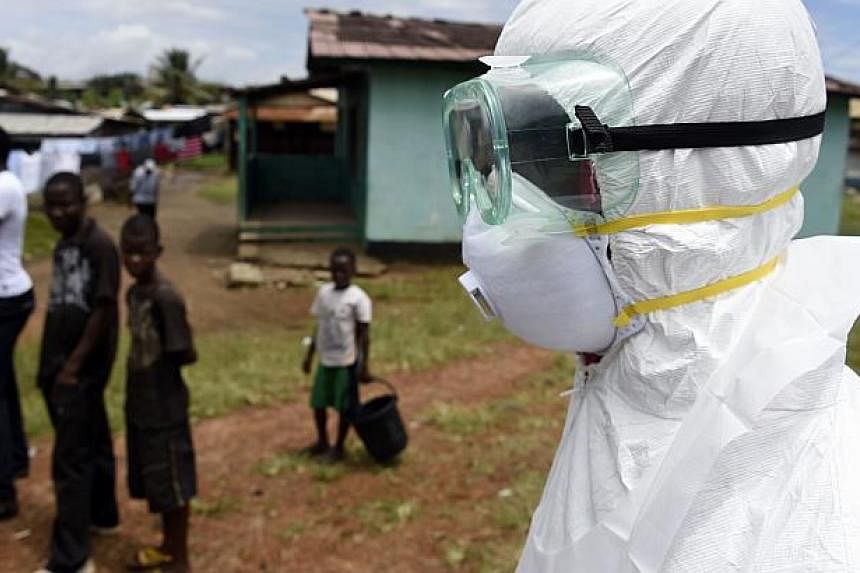UNITED NATIONS (REUTERS) - Children in Liberia, Sierra Leone and Guinea are deeply distressed and puzzled by the Ebola outbreak that has produced 3,700 orphans, closed schools for millions and seen sports discouraged to avoid contact, a UN official said on Friday.
Sarah Crowe, crisis communications chief for the United Nations Children's Fund (Unicef), returned to New York last week after spending more than a month in Liberia where she said the haemorrhagic fever has "hijacked every aspect of life."
A six-year-old girl in Liberia asked her: "When is Ebola going to leave Liberia because I want to go back to school?"
The death toll has risen to 4,546 out of 9,191 known cases in the worst affected countries of Guinea, Liberia and Sierra Leone, the World Health Organisation (WHO) said. Cases have also been recorded in Nigeria, Senegal, Spain and the United States.
A separate Ebola outbreak in Democratic Republic of Congo, from a different strain, has claimed 49 lives, WHO has said.
"It's changed the way people live and it's changed the way people die," Crowe said of the worst outbreak on record of Ebola, which is spread through direct contact with bodily fluids from an infected person.
"It's eroded that sense of compassion."
Unicef said it needs more than US$200 million (S$255 million) for its Ebola response in West Africa, but so far had only received about one-third of the funds.
Some 3,700 children in West Africa have lost one or both parents to Ebola, Unicef has said.
Crowe said in Liberia some 600 children who had lost parents had been reunited with an extended family member.
"Undoubtedly it's going to leave a deeply distressed population of children... They're puzzled by it and distressed," Crowe told a news conference at the United Nations.
Children were bewildered by burial teams "looking like astronauts in crop spraying suits" coming into their homes to take away ill or dead relatives, she said.
Sports like football had also been discouraged to stop the spread, Crowe added.
Unicef is setting up interim care centres, Crowe said, where children who have been in contact with infected people can be cared for by a network of trained Ebola survivors because they now have a built-in immunity to the disease.
"That means they are able to provide the love and care and attention that small children particularly need," she said.
Crowe warned that the Ebola outbreak threatened to erode gains made in the region in child mortality and maternal health, adding that Liberia had achieved the fastest decline in child mortality in Africa in the past 10 years.
She recounted stories on one woman losing her baby and another woman dying in childbirth because they were turned away from health centres over fears they could have Ebola. Along with battling Ebola, Unicef is trying to rebuild primary health care. "It would be an absolute outrage that in the face of this historic epidemic children would be dying of diseases that are very easily prevented such as measles, malaria," Crowe said.

